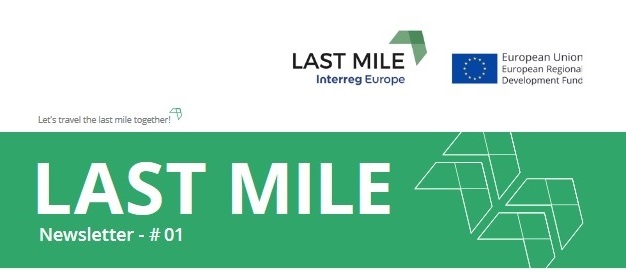"Can automated vehicles be a solation for last mile-challenges in rural areas?" This and other visionary questions related to practical applications for connected transport and new technologies in the context of seasonal mobility in tourist areas were also tackled in an interregional exchange meeting in Varna (6-9 March). Getting to know existing approaches in mobility management for the Bugarian tourist region Varna and deliberating possible innovative solutions focusing on the "last mile" connection was the motivation for representatives of regional authorities and experts from transport, tourism and environment from 6 European countries to meet here.
From 6-9 March 2017, about 30 representatives of regional authorities and experts from transport, tourism and environment from 6 European countries participated in a study visit in Varna, Bulgaria, to learn about different approaches in the field of sustainable flexible transport - framework conditions, policies and practical examples - and find transferable elements for their own regional context!
With its extraordinary situation at the Black Sea, nearby well known summer destinations with intense tourism, Varna is facing high traffic peaks in summer which have to be solved. Step by step, first sustainable mobility soluitions have been implemented in the last years, like the installation of a seasonal bis-shuttle between the city and the hotel resort or an e-car rental for tourists. Additionally, flexible ship services are provided in the summer season. With the project LAST MILE, flexible transport solutions between the hotel resort and points of interest in the regions shall be planned.
The group visited Byala, a good example for a municipality promoting flexible transport solutions: In 2014, the municipality allowed private citizens to offer transportation with phaetons with horses and one year later an electric minibus for sight-seeing was purchased and launched during the summer season. During summer tim, 4 phaetons are operating. The main beneficiaries are the tourists and the owners of summerhouses and flats in the municipality who visit the beach during the holidays. The number of users of these offered flexible transport solutions is very high, so that there lochal stakholders are aware of the importance of flexible transport services in this area.
In Byala, project partner from the LAST MILE project together with stakeholders from the regions from all over Europe took even two steps ahead and reflected upon potentials of automated vehicles for "last mile" mobility solutions: how interesting are automated vehicles in the LAST MILE-approach and what potentials could they have? These questions lead to a controversial discussion: Though positive impacts are expected for different social groups and also for touristic use, rural areas are often lacking smart infrastructure, which would be a precondition for automated vehicles to operate. Even more important are thical questions and the acceptance by users and road users against this new form of transportation, suppressing arguments in the favour of it.
In regard to e-mobility, it was discussed that e-carsharing might in fact have potentials as "last mile" mobility offers in tourism. However, as pointed out during the workshop, electric cars are only better for the environment than cars with combustion engines, if the electricity is provided by renewable energy. Otherwise the carbon footprint is the same or even worse.
The discussions confirmed that the concept of connected transport with innovative technologies can not solve the LAST MILE for alone; additional measures in mobility services and information are needed. With the knowledge of the need of an integrated approach the project partnership left Varna on 9 of March to proceed with their work in the project.
As a next step, the recently finished regional analyses of state-of-the-art in flexible transport as well as framework conditions and barriers will be assessed in order to highlight main differences and communalities among the regions. This compilation will serve as a basis for policy recommendations towards frameworks that facilitate small-scaled flexible transport systems.


